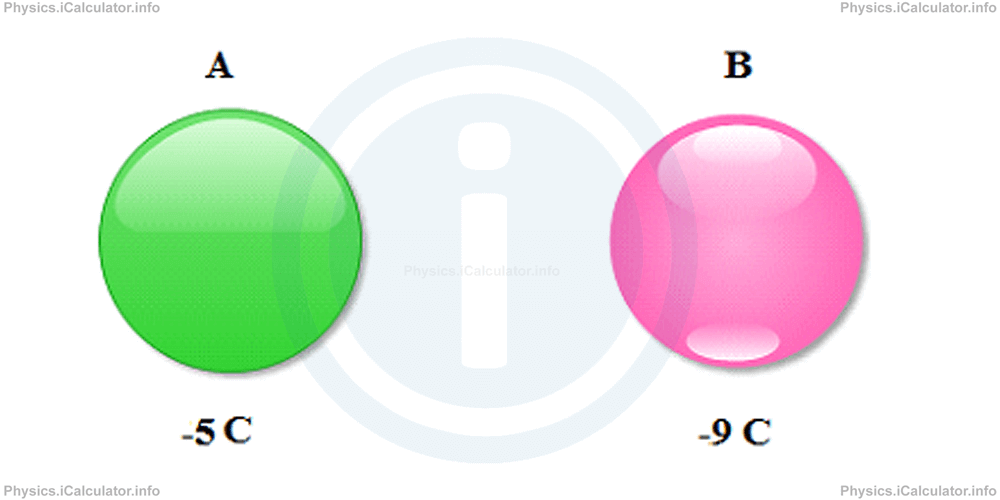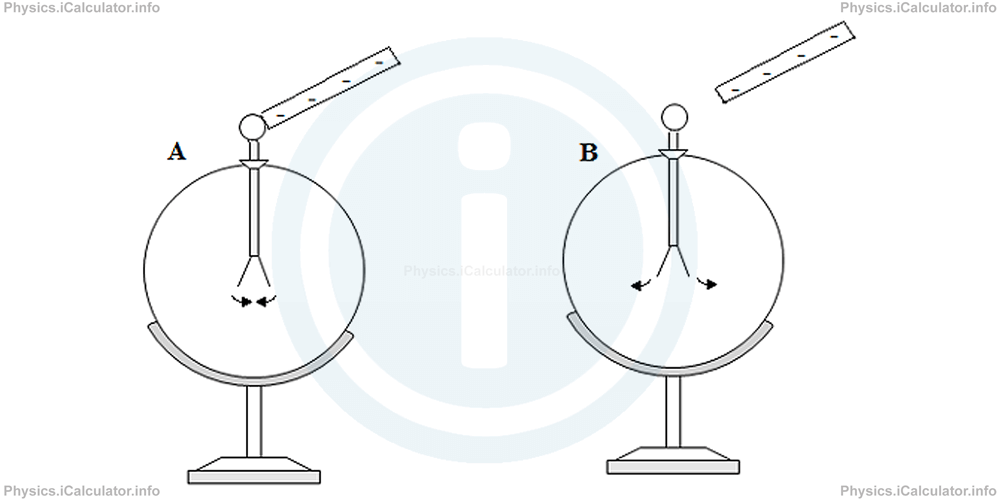Menu
Electric Charges. Conductors and Insulators Practice Questions
Please provide a rating, it takes seconds and helps us to keep this resource free for all to use
The following physics revision questions are provided in support of the physics tutorial on Electric Charges. Conductors and Insulators. In addition to this tutorial, we also provide revision notes, a video tutorial, revision questions on this page (which allow you to check your understanding of the topic) and calculators which provide full, step by step calculations for each of the formula in the Electric Charges. Conductors and Insulators tutorials. The Electric Charges. Conductors and Insulators calculators are particularly useful for ensuring your step-by-step calculations are correct as well as ensuring your final result is accurate.
Not sure on some or part of the Electric Charges. Conductors and Insulators questions? Review the tutorials and learning material for Electric Charges. Conductors and Insulators
| Tutorial ID | Title | Tutorial | Video Tutorial | Revision Notes | Revision Questions | |
|---|---|---|---|---|---|---|
| 14.1 | Electric Charges. Conductors and Insulators |
Physics Revision Questions for Electric Charges. Conductors and Insulators
1) Two identical objects are charged with the values shown in the figure.

What is the final charge in both objects after placing them in contact?
- +2 C
- -2 C
- -7 C
- -14 C
- +14 C
Correct Answer: C
2) When a negatively charged object touches the leaves of a charged electroscope A, the leaves close, while when the same object is brought near another charged electroscope B, the leaves open more. What were the original charges of electroscopes A and B?

- Electroscope A was positive while electroscope B was negative
- Electroscope A was negative while electroscope B was positive
- Both electroscopes were negative
- Both electroscopes were positive
- Electroscope A was negative while electroscope B was neutral
Correct Answer: A
3) A charged object contains 5.0 billion free electrons. What is its electric charge in Coulombs?
- 1.6 × 10-9 C
- 1.6 × 10-1°C
- 5.0 × 10-1°C
- 8.0 × 10-1°C
Correct Answer: D
Whats next?
Enjoy the "Electric Charges. Conductors and Insulators" practice questions? People who liked the "Electric Charges. Conductors and Insulators" practice questions found the following resources useful:
- Practice Questions Feedback. Helps other - Leave a rating for this practice questions (see below)
- Electrostatics Physics tutorial: Electric Charges. Conductors and Insulators. Read the Electric Charges. Conductors and Insulators physics tutorial and build your physics knowledge of Electrostatics
- Electrostatics Revision Notes: Electric Charges. Conductors and Insulators. Print the notes so you can revise the key points covered in the physics tutorial for Electric Charges. Conductors and Insulators
- Check your calculations for Electrostatics questions with our excellent Electrostatics calculators which contain full equations and calculations clearly displayed line by line. See the Electrostatics Calculators by iCalculator™ below.
- Continuing learning electrostatics - read our next physics tutorial: Coulomb's Law
Help others Learning Physics just like you
Please provide a rating, it takes seconds and helps us to keep this resource free for all to use
We hope you found this Physics tutorial "Electric Charges. Conductors and Insulators" useful. If you did it would be great if you could spare the time to rate this physics tutorial (simply click on the number of stars that match your assessment of this physics learning aide) and/or share on social media, this helps us identify popular tutorials and calculators and expand our free learning resources to support our users around the world have free access to expand their knowledge of physics and other disciplines.